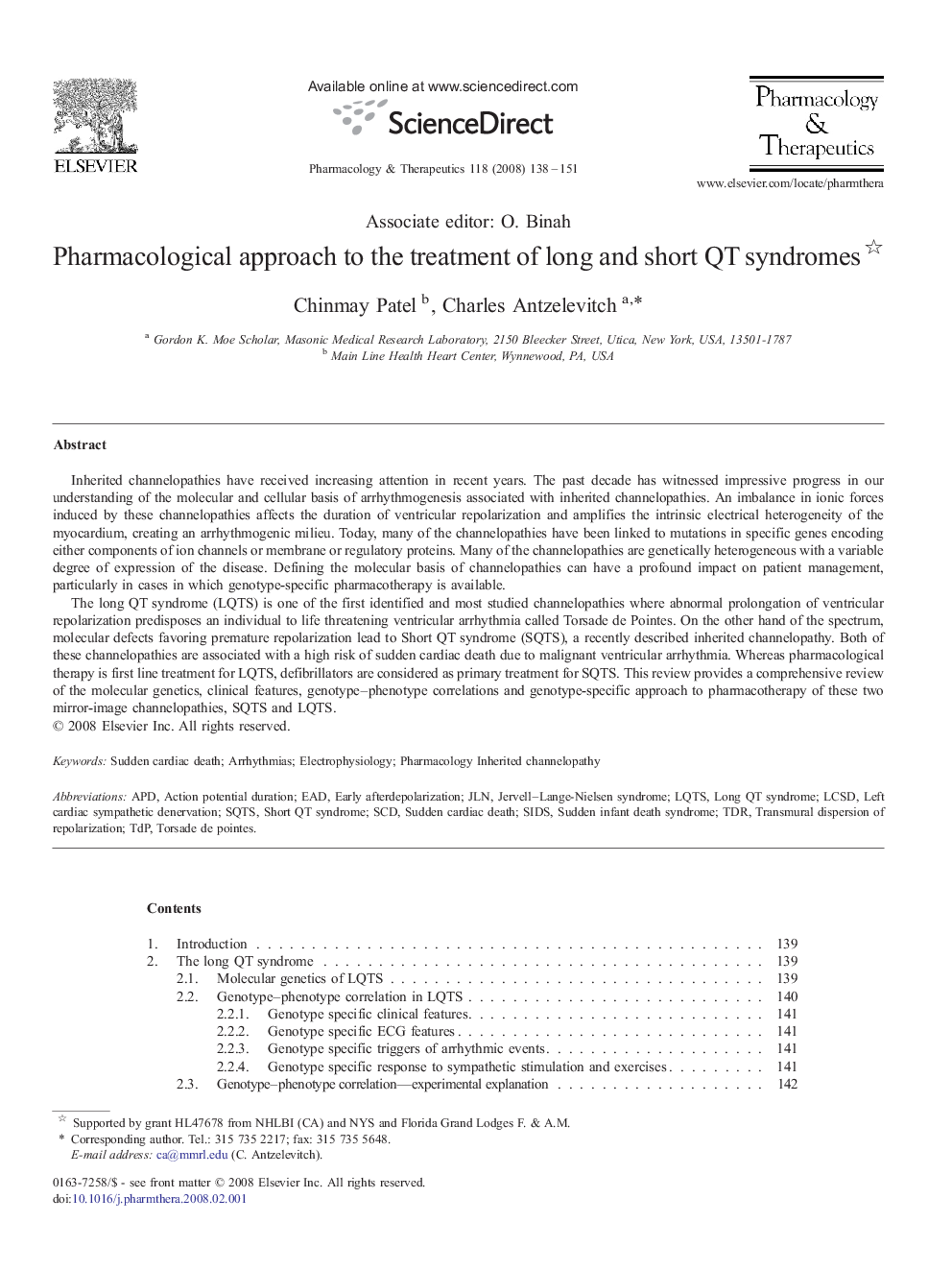| Article ID | Journal | Published Year | Pages | File Type |
|---|---|---|---|---|
| 2563645 | Pharmacology & Therapeutics | 2008 | 14 Pages |
Abstract
The long QT syndrome (LQTS) is one of the first identified and most studied channelopathies where abnormal prolongation of ventricular repolarization predisposes an individual to life threatening ventricular arrhythmia called Torsade de Pointes. On the other hand of the spectrum, molecular defects favoring premature repolarization lead to Short QT syndrome (SQTS), a recently described inherited channelopathy. Both of these channelopathies are associated with a high risk of sudden cardiac death due to malignant ventricular arrhythmia. Whereas pharmacological therapy is first line treatment for LQTS, defibrillators are considered as primary treatment for SQTS. This review provides a comprehensive review of the molecular genetics, clinical features, genotype-phenotype correlations and genotype-specific approach to pharmacotherapy of these two mirror-image channelopathies, SQTS and LQTS.
Related Topics
Health Sciences
Pharmacology, Toxicology and Pharmaceutical Science
Pharmacology
Authors
Chinmay Patel, Charles Antzelevitch,
